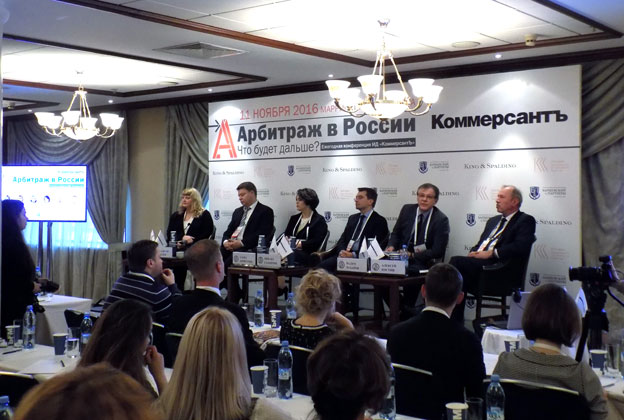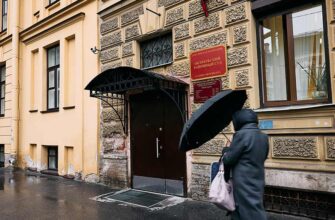The amendmets made to the arbitration law, which entered into force on September 1, 2016, were discussed at a conference “Arbitration in Russia to 2016: what happens next?” organized by the publishing house “Kommersant” on November, 11 2016.
The representatives of the Ministry of Justice, Chamber of Commerce and Industry of Russia, reputable professional associations and companies, and the lawyers of the largest Russian companies have discussed various aspects of the changes.
For instance, the Chairman of the Moscow Commercial court at the International Commercial Arbitration Court, Andrei Kostin, drew attention to the fact that changes in the arbitration law are not fundamental. A key step was taken by adopting a law of the 1993 year, when “a copy of the document of the UN Commission on international trade law” was introduced, and “the idea was to take international arbitration as is”. In Russia, two different documents on arbitration have been for a long time: one for internal use, and the other – for external. What is happening today is a result of practice accumulated in the country and is a next step towards the international format.
“We had a goal to make the Russian arbitration more attractive”, – V. Chubarov said , a vice-president of the Chamber of Commerce and Industry of Russia. According to him: “it is important that the foreign companies resolve disputes here, including with participation of foreign arbitrators”.
According to E. A. Borisenko, one of the developers of the law, and the current first vice-president of Gazprombank, “the reform was made through the appeal of entrepreneurs”. At the moment, having changed her position and using the law from the other, practical side, she evaluates it positively. “Even if I am critical about it, the law seems to be worthy – she says – the question is, whether the current arbitration institutions are able to work with it and they do that”. E. A. Borisenko said that the strong points of the reform are the clarity concerning such matters as grounds for case, arbitrability, and clear criteria for the activities of arbitration institutions. “The arbitration court is negatively perceived perceived today – she said, – as we get situation under control inside the system, we also raise the level of legal culture of business.”
It was also discussed at the conference that, along with “honest arbitrators”, the law implies having the arbitrators, which can give the entrepreneurs the opportunity for private dispute resolution.
The competitive environment created by the new law will enable the entrepreneurs to select judges with greater care. “We will be entitled to look through the list of arbitrators, – E. A. Borisenko said, – but we will also study the reputation of the heads of courts”.
In terms of the reputation, the judges will be required to ask the experts to provide the copies of documents on education and experience. Despite the negative comments of some present, in this sense, there will be no exceptions for everyone, including the internationally recognized experts.
A major new feature guaranteed by law, will be formation of arbitration courts in the framework of companies. According to V. Chubarov, ” a time period for introduction and approval of such arbitration court by the government will be up to 3 months.” At the same time, the vice-president of Gazprombank said that the company will not create an independent NGO.
The Deputy Minister of Justice of the Russian Federation M. Halperin noted with satisfaction that the implementation of the new rules was perceived with more positively than he had expected. “People have already started to work according to the law without our help” – he said.
Resources: Kommersant





